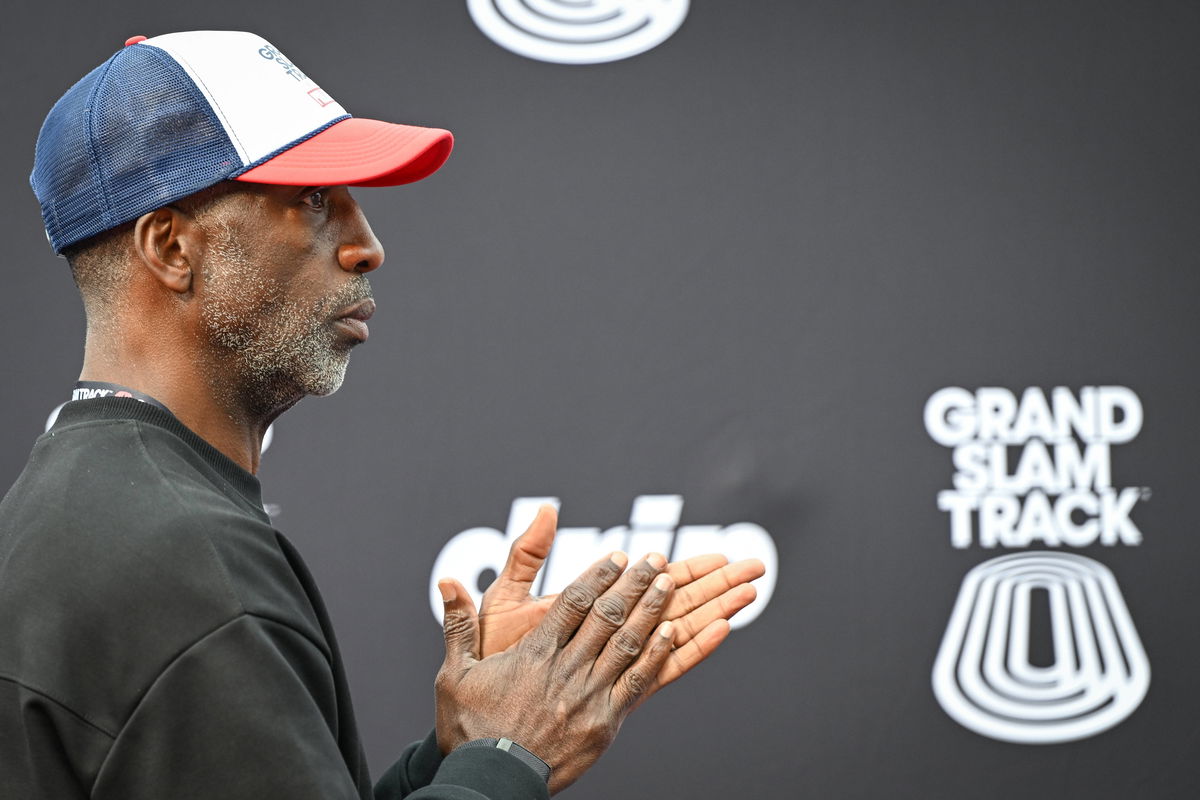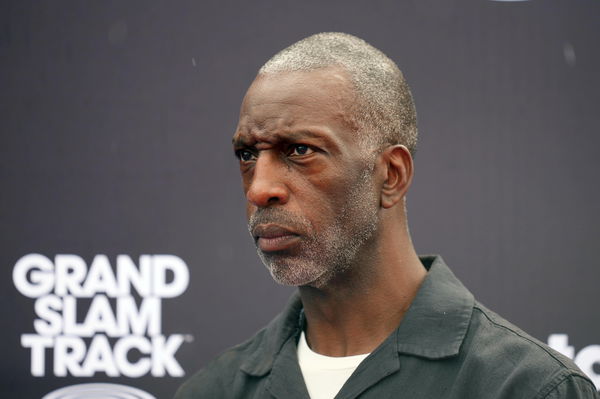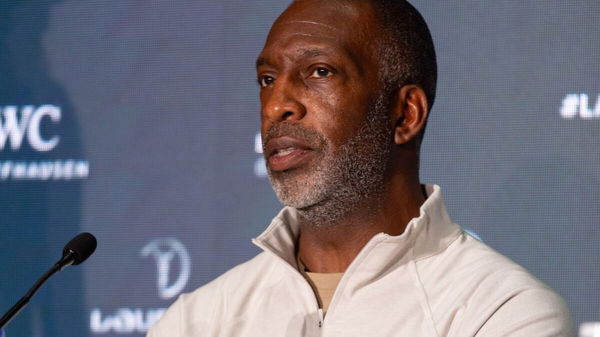
Imago
Grand Slam Track In Philadelphia – Day Two PHILADELPHIA, UNITED STATES JUNE 1: American former Olympic champion sprinter Michael Johnson, the founder and CEO of Grand Slam Track Series is seen during Day Two of the Philadelphia event at Franklin Field in Philadelphia, Pennsylvania, United States, on June 1, 2025. Philadelphia United States PUBLICATIONxNOTxINxFRA Copyright: xSTRx originalFilename:str-grandsla250601_npHJk.jpg

Imago
Grand Slam Track In Philadelphia – Day Two PHILADELPHIA, UNITED STATES JUNE 1: American former Olympic champion sprinter Michael Johnson, the founder and CEO of Grand Slam Track Series is seen during Day Two of the Philadelphia event at Franklin Field in Philadelphia, Pennsylvania, United States, on June 1, 2025. Philadelphia United States PUBLICATIONxNOTxINxFRA Copyright: xSTRx originalFilename:str-grandsla250601_npHJk.jpg
The legend Michael Johnson! Even Usain Bolt named him on his all-time list of athletes he wishes he could’ve raced. Well, Johnson’s 200m world record (19.32) stood tall for 12 years before Bolt broke it in 2008—and if you count it as the American record, it lasted over two decades before Noah Lyles finally took it down. And that’s not all—his 400m world record (43.18) held strong for 17 years until Wayde van Niekerk smashed it. Add four Olympic golds to that, and you’ve got one of the greatest legacies in track and field. But lately, that legacy’s been getting some side-eye. Why? One reason: Grand Slam Track.
Watch What’s Trending Now!
Grand Slam Track’s sudden collapse right before its big season finale in L.A. and all the money drama that followed have landed Michael Johnson in some serious hot water. Even before the meet kicked off, he caught heat from Tara Davis-Woodhall and her husband, Hunter Woodhall, for not including any field events in the lineup. Rai Benjamin backed them up too, throwing shade by saying, “I feel like the old heads are just trying to push what they know or what they knew back in 1995.” Then came the real storm—athletes still waiting on prize money and appearance fees started calling out the league, and yeah, that includes Johnson, even if not by name. Grant Fisher didn’t hold back, hinting at legal action and flat-out saying there’s no way GST survives 2026 if they don’t pay up. Sure, Johnson’s not running the show all by himself—but still, that criticism’s got to sting, right?
After all, from day one, Michael Johnson’s been the face of Grand Slam Track—making the big announcements, hyping it up, and getting the whole track world to believe that winning a Slam could land you $100,000. So yes, it makes sense that a lot of the backlash is aimed at him. And let’s be real—stuff like this can take a toll on the legacy he’s spent years building. Even Justin Gatlin was curious if all this drama was messing with how people see Johnson’s track legacy. So, he asked him straight up on his podcast Ready Set Go. But Johnson? He stayed cool about it. “I don’t spend a lot of time, honestly, thinking about my legacy. I really don’t,” he said. “You know, you never hear me really talking about, well, I want to be remembered this way or that way. It’s just not something that I’ve ever really spent a lot of time on.”
ADVERTISEMENT

Imago
Track & Field: Grand Slam Track Miami May 4, 2025 Miramar, FL, USA Michael Johnson reacts during the Grand Slam Track Miami at Ansin Sports Complex. Miramar Ansin Sports Complex Florida United States, EDITORIAL USE ONLY PUBLICATIONxINxGERxSUIxAUTxONLY Copyright: xKirbyxLeex 20250504_hlf_al2_126
And Michael Johnson doesn’t really stress about his legacy—that’s up to the fans. But that doesn’t mean he takes his role lightly. He knows he’s built something meaningful over the years, so he’s not about to start making reckless choices now. If he believes a decision could help the sport, he’s going to stand by it. “I just—I’ve always believed that, you know, this sport is worth it,” Johnson said. “If I can try to change it, I should. And so, I am, and I’ll continue.” He gets it—he knows the money mess has seriously affected the athletes. That’s why he’s focused on fixing the problem instead of getting caught up in all the noise and criticism. In one of his recent chats, Johnson laid out what went wrong and promised he’s working on a solution.
ADVERTISEMENT
The Grand Slam Track’s financial issues might not continue for long
On July 24, Michael Johnson joined Front Office Sports, and of course, Grand Slam Track was a hot topic. So, what exactly caused all the financial chaos? Johnson broke it down honestly: the league did secure $30 million in commitments—but not all of it actually came through. One of their major investors couldn’t deliver the full amount, which threw a wrench into everything. Despite raising a solid amount, running a league like GST was expensive, and that unexpected shortfall hit hard.
ADVERTISEMENT

Even with the setbacks, Johnson stood by the league’s purpose. He said GST stuck to its mission and delivered something meaningful to the sport. He also emphasized that they’re still committed to paying what’s owed to the athletes. It hasn’t been easy, but Johnson made it clear he’s proud of what the team and the athletes accomplished. “It’s been a very difficult situation for us,” he admitted. “I’m very proud of what our team was able to accomplish and all of the folks that worked on this and our athletes as well.” At the end of the day, Johnson isn’t running from the fallout—he’s owning it and trying to fix it, while still believing in the vision that started it all.
ADVERTISEMENT
ADVERTISEMENT
ADVERTISEMENT
ADVERTISEMENT

